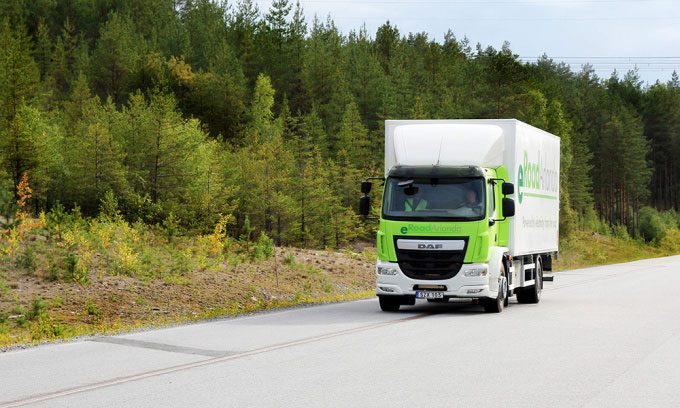The electric highway will be constructed along 21 km of the European route E20, allowing vehicles to charge while in motion.
European Route E20 connects Hallsberg and Örebro, situated between three major cities in Sweden: Stockholm, Gothenburg, and Malmö. Sweden is introducing the world’s first permanent electrified highway project following the European Union (EU) passing a law last month mandating that all new cars sold must have zero CO2 emissions by 2035, according to a report by Euro News on April 29.

An electric vehicle on the road in Sweden. (Photo: EPA)
Jan Pettersson, the Director of Strategic Development at the Swedish Transport Administration, welcomed the new project and stated that electrifying the highway is essential for decarbonizing the transportation sector. In 2018, Sweden also tested the world’s first electric charging road for electric vehicles on a 1.6 km stretch between Stockholm Arlanda Airport and Rosersberg.
The electric highway project is currently in the phase of procuring materials and equipment, with groundbreaking expected in 2025. The method of charging for the highway has yet to be determined, but there are three main types: a conductive system, a conductive rail system, and an inductive system.
The conductive system can only be used for heavy vehicles, as it utilizes overhead wires to supply power to a special bus or electric vehicle. The conductive rail system operates similarly to wireless charging for smartphones, with vehicles receiving energy from a plate embedded in the road. The inductive system uses devices buried beneath the road surface to transmit electricity to a coil in the electric vehicle.
Sweden has approximately 500,000 km of roads, but only highways need to be electrified, as vehicles will never have to travel more than 45 km to reach such a road. The country plans to electrify an additional 3,000 km of roads by 2045 and has collaborated with Germany and France to exchange experiences through research cooperation organizations. Sweden and Germany have had public road testing facilities for several years, while France also intends to develop a pilot electric road.




















































